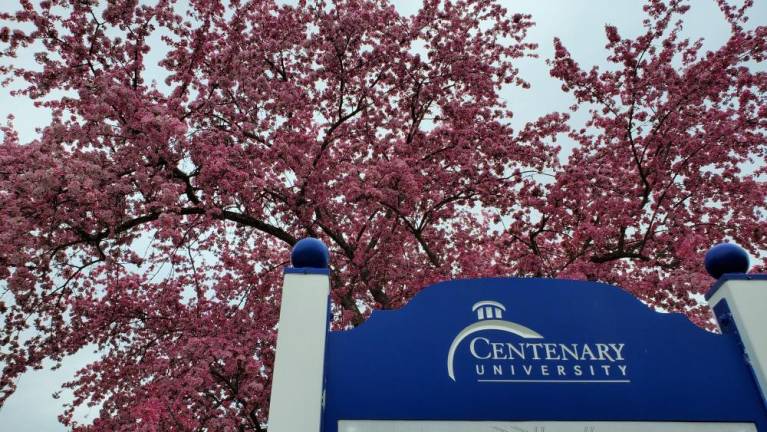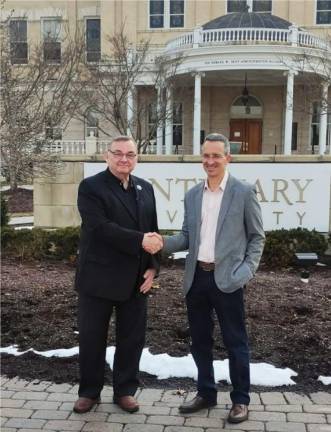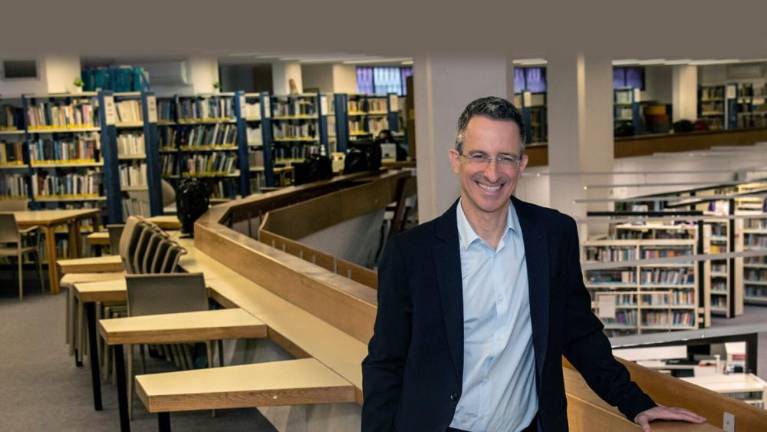Masters of happiness?
A small New Jersey college takes a big leap of faith



It’s not often that an opportunity like this gets into the hands of a small school. For Centenary University, a small private college in Hackettstown, NJ, a new, state-of-the-art graduate degree was a risk they were willing to take, and it seems to be paying off.
What degree, exactly? Why, happiness studies.
Studying happiness isn’t the first thing you think of when you think “master’s degree.” People wondered how such an abstract topic like happiness could be brought into an academic setting.
Enter educator and writer Dr. Tal Ben-Shahar. He’d previously taught at Harvard, his alma mater, instructing some of its most popular courses — over 800 students took his class Positive Psychology. After that, he founded the Happiness Academy, a mostly online organization that focuses on teaching good mental health practices and wellness.
While the Happiness Academy offered a Certificate in Happiness Studies, Ben-Shahar wanted a fully accredited degree. A master’s in happiness studies would look at happiness from many angles, from psychology and philosophy to business and history. The course would include classes like “Facilitating Happiness” and “Integrative Leaders on Happiness” that would study these emotions both at an individual and community level.
All he needed to do was find a school that would accept it.
Centenary wasn’t his first choice. “I did start off my search for an academic partner with bigger universities like Harvard, Columbia, Miami, and others. I was not successful, as time and again I faced skepticism and bureaucracy,” he said. Larger schools were hesitant to put time and resources into something whose success was far from guaranteed.
When Ben-Shahar discovered Centenary, it felt like a breath of fresh air. Not only was it small, hidden away from the rest of urbanized New Jersey, but it was flexible. “As soon as I set foot on the Centenary campus, I fell in love with the place and, more importantly, the people. I encountered humbleness, kindness, thoughtfulness and a strong desire to do good. I know, rationally and emotionally, that I could not ask for a better partner.”
Though Centenary was also skeptical at first, they quickly bought into the idea. The university is no stranger to change and new ideas, having evolved time and again throughout its 155-year history. From its founding in 1867 as a preparatory school, the school transitioned to an all-girls’ prep school in 1910, then to a women’s college in 1940, then to a co-ed college in 1988, and finally to a university in 2016.
Alongside its 52 undergraduate programs, Centenary now offers five graduate degrees: business, counseling, education, and leadership and public administration, and now happiness studies.
It took a year and a half to develop the curriculum and get the course approved before the degree was announced on March 18 at the World Happiness Summit in Miami, Florida. “[The audience] went crazy,” says Dr. Bruce Murphy, president of Centenary University, who made the announcement. “They were really elated to hear that this was going to be a degree.”
Applications rolled in just as enthusiastically. As of April, an unprecedented 161 applicants have applied, with 35 already admitted into the program. “I’ve never seen anything like it,” says Murphy. Classes begin online this October, and there are tentative plans for an in-person retreat next summer.
Those applicants range from undergrads just pondering careers to seasoned bosses. Not only does happiness studies look into personal happiness, but it also applies these teachings to a professional work setting. In the wake of the Great Resignation, which saw millions of unhappy workers walk off the job, employee wellbeing – a factor statistically proven to increase retention and productivity – may be poised to gain legitimacy in the eyes of corporate America.
“Ultimately the responsibility for our happiness resides with us, not with our boss, partner or teacher,” said Ben-Shahar. “At the same time, managers can learn a great deal from the science of wellbeing that can help them and their employees become happier — and more successful.”
An interesting side effect of being the first degree of its kind is the influx of international students: 30% of applicants are from outside of the United States.
“I would like Centenary to be known that we were the first one that got into this,” said Murphy, "and I would like to have those graduates do great things.”
Amanda Kujawa is an incoming junior at Centenary University majoring in communications.